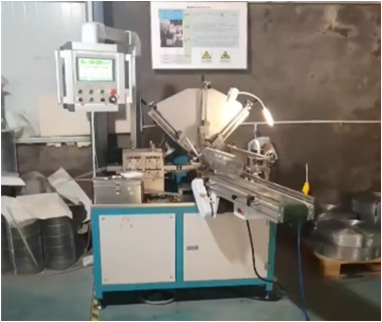 Tel:
+8615930870079
Tel:
+8615930870079
พ.ย. . 05, 2024 19:06 Back to list
sintered ss filter cartridges
Sintered Stainless Steel Filter Cartridges An Overview
Sintered stainless steel filter cartridges are an essential component in various industrial filtration applications. Their unique properties, such as high strength, durability, and excellent chemical resistance, make them ideal for filtering a wide range of fluids, including liquids and gases. This article will delve into the characteristics, advantages, applications, and maintenance of sintered stainless steel filter cartridges.
Characteristics of Sintered Stainless Steel Filter Cartridges
Sintered filter cartridges are made from stainless steel powder that is compacted and then heated to a temperature below its melting point. This process, known as sintering, causes the particles to fuse together, creating a porous structure with fine pore sizes. The resulting filter is not only robust but also offers precise filtration capabilities.
These cartridges come in various pore sizes, typically ranging from 1 to 100 microns, suitable for different filtration needs. The sintered structure allows for high dirt-holding capacity, meaning they can capture significant amounts of contaminants before needing replacement. The cartridges are often designed to be reusable, as they can be cleaned and regenerated through backwashing or ultrasonic cleaning methods, which adds to their long-term cost-effectiveness.
Advantages of Sintered Stainless Steel Filter Cartridges
One of the primary advantages of using sintered stainless steel filter cartridges is their durability. Unlike traditional woven or cloth filters, sintered filters are less prone to tearing or damage under extreme pressure or temperatures. This resilience makes them suitable for use in harsh environments where other materials might fail.
Additionally, stainless steel has excellent corrosion resistance, allowing for the filtration of aggressive chemicals and high-temperature applications. This feature is particularly beneficial in industries such as petrochemicals, pharmaceuticals, and food processing, where cleanliness and material compatibility are paramount.
Another notable advantage is the ease of maintenance. Sintered stainless steel filters can withstand multiple cleaning cycles, reducing operational costs associated with frequent replacements. They also have a higher flow rate compared to traditional media, which can enhance processing efficiency in various filtration systems.
Applications of Sintered Stainless Steel Filter Cartridges
sintered ss filter cartridges

Sintered stainless steel filter cartridges are employed across various sectors, including
1. Pharmaceutical Industry In this sector, maintaining sterility and avoiding contamination is crucial. Sintered filters are used for the filtration of solvents and other liquids to produce pure, contaminant-free products.
2. Food and Beverage Industry These filters help ensure product safety and quality by removing particulates during the production process, including in beer and juice manufacturing.
3. Petrochemical Applications Their ability to resist corrosive substances makes them ideal for filtering oils, fuels, and other chemicals in refineries and chemical plants.
4. Water Treatment Sintered stainless steel filters are effective for drinking water treatment processes, helping capture sediments, rust, and other particles to ensure clean water supply.
5. Metalworking Fluid Filtration They are also used in metalworking applications to extend tool life and improve product quality by maintaining clean lubricants and coolants.
Maintenance of Sintered Stainless Steel Filter Cartridges
To maximize the lifespan and efficiency of sintered stainless steel filter cartridges, proper maintenance is crucial. Regular cleaning schedules should be established based on the specific application and level of contamination. Common cleaning methods include backwashing, where the flow of liquid is reversed to dislodge particles, and ultrasonic cleaning, which uses high-frequency sound waves to remove debris.
In conclusion, sintered stainless steel filter cartridges offer an ideal solution for various filtration challenges in industrial applications. Their durability, ease of maintenance, and excellent chemical resistance make them a preferred choice for many industries, ensuring that processes remain efficient and product quality is maintained. Whether in pharmaceuticals, food production, or chemical processing, these filters play a pivotal role in ensuring operational excellence and safety.
-
Types and Applications of Air Filtration CartridgesNewsJul.28,2025
-
The Role of Gas Turbine FiltersNewsJul.28,2025
-
Mastering Air Filter Cartridge UseNewsJul.28,2025
-
Advanced Turbine Filters for Modern Gas TurbinesNewsJul.28,2025
-
Cellulose Air Filter Cartridge Advantages in Dust FiltrationNewsJul.28,2025
-
Cellulose Filters for Air Particle ReductionNewsJul.28,2025

 Email:
Email:





